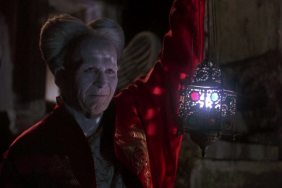Coming to DVD Tuesday, January 8th

Cast:
Sam Rockwell as Brad Cairn
Vera Farmiga as Abby Cairn
Celia Weston as Hazel Cairn
Dallas Roberts as Ned Davidoff
Michael McKean as Chester Jenkins
Jacob Kogan as Joshua Cairn
Directed by George Ratliff
Review:
Whether a subconscious manifestation of reluctant adulthood or just another sign of…










